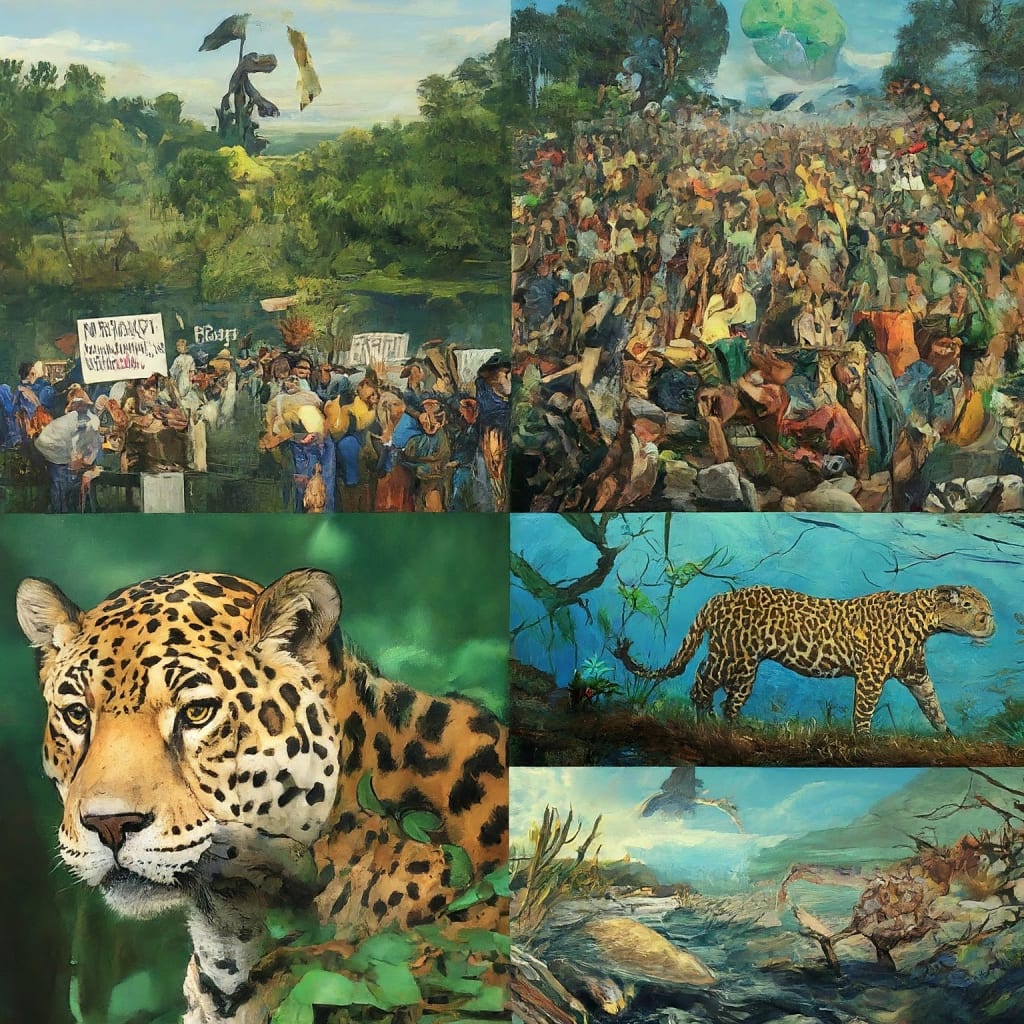The Looming Population Crisis: A Call to Action for Earth's Sustainability
Navigating the Perils of Overpopulation and Biodiversity Decline in the Modern Era

As humanity hurtles towards surpassing Earth's sustainable capacity, the urgency to address the consequences of overpopulation becomes increasingly paramount. Research conducted by the World Wildlife Fund suggests that around 1970, the planet could adequately support a population of three and a half billion people. However, with the dawn of the new millennium, humanity finds itself grappling with a population explosion, with estimates on New Year's Day indicating a staggering 8 billion people.
This exponential growth has triggered a cascade of environmental challenges, chief among them being the severe habitat shortages faced by wild plants and animals. The resultant mass extinction crisis, unparalleled since the era of dinosaurs, casts a shadow over the future of biodiversity on our planet. While potential solutions may be on the horizon, it is imperative to first comprehend the magnitude of the biodiversity crisis currently unfolding.
In the verdant landscapes of Washington state, the Salish Sea once thrived as a bastion of global food supply. Commercial fisherman Dana Wilson fondly reminisces about the abundant salmon runs that sustained his family for generations. However, the bounty of yesteryears has now dwindled significantly. What was once an ecosystem teeming with life has succumbed to the perils of habitat loss, pollution, and the ravages of climate change. Wilson's traditional way of life, deeply intertwined with the rhythms of nature, now hangs precariously in the balance. Similarly affected is Armando Briones, a Lummi tribe member, who mourns the loss of a cultural heritage deeply rooted in the land and its bountiful resources.
The plight of Washington's wildlife is but a microcosm of a global crisis. According to the World Wildlife Fund, the past 50 years have witnessed a catastrophic collapse of 69% in global wildlife abundance. This precipitous decline can be attributed to the relentless pressures exerted by overpopulation, rampant consumption, and unchecked expansion. The dire warnings issued by biologist Paul Ehrlich in 1968 regarding the unsustainable trajectory of human activity have now materialized into a stark reality. With human encroachment swallowing 70% of the planet's land and freshwater resources, the specter of extinction looms large over countless species.
Biologist Tony Barnosky's research delves into the annals of the fossil record, revealing an alarming acceleration in the rate of species loss. His findings are echoed by Liz Hadley, who bears witness to the unraveling of California's once-thriving ecosystems, epitomized by the disappearance of emblematic species such as grizzly bears. Although the assertion that humanity is driving the planet towards annihilation may seem hyperbolic to some, the existential threat posed by the destruction of natural habitats cannot be overstated.
The crisis extends far beyond North America, with Latin America shouldering a disproportionate burden. Wildlife abundance in the region has plummeted by a staggering 94% since 1970. Despite the gloom, there are glimmers of hope. Mexican ecologist Gerardo Ceballos champions the preservation of Earth's remaining wilderness, advocating fervently for the protection of critical habitats. His endeavors in the Calakmul Biosphere Reserve offer tangible proof that concerted conservation efforts can yield positive outcomes, such as the revival of jaguar populations.
However, isolated victories are but a drop in the ocean in the battle against mass extinction. Ceballos underscores the urgent imperative for global cooperation, emphasizing that climate change and species loss represent existential threats to humanity's future. Yet, the inertia of politics persists, as evidenced by the failure to meet conservation targets set by the UN biodiversity conference.
In the face of mounting adversity, individuals like Armando Briones stand as beacons of resilience. Despite the impending loss of their way of life, they refuse to succumb to despair, instead choosing to adapt and evolve. However, as humanity stands at the precipice of a potential sixth mass extinction event, the responsibility to chart a sustainable course forward rests squarely on the shoulders of society. Only by confronting the ecological crisis head-on can we hope to safeguard the future of our planet and all its inhabitants.
About the Creator
DUY Nguyễn
I'm a worker, but I love writing and am self-teaching. My goal is to offer many engaging and unique articles to readers. Also, I want to develop a distinctive style so that when people read an anonymous piece, they'll know it's me.





Comments
There are no comments for this story
Be the first to respond and start the conversation.